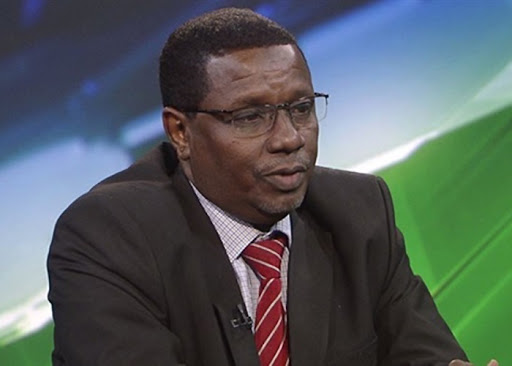Opinion
How Sudan Is Being Secretly Infiltrated (2-2)

By Atta Al-Manan Bakhit
Although the Sudanese government has apprehended several United Nations and international humanitarian organization personnel caught in the act of transporting ammunition and weapons to the rebel forces to fuel the conflict and even transporting rebel leaders and fighters using humanitarian flights, this outrageous act did not receive the necessary condemnation from the central powers and their organizations.
On the other hand, the leadership of Operation Lifeline Sudan continued to violate Sudan’s sovereignty, incite against the central government, and remain silent about the transgressions and violations committed by the rebel factions. They frequently disregarded the organizational and administrative rules that Operation Lifeline was originally based upon, thereby implicitly or explicitly supporting the use of humanitarian aid to bolster the rebel movement in South Sudan.
Supporting the War in Darfur
Direct engagement by humanitarian organizations with the rebel movement in the south led them to completely disengage from the central government and follow the rebel movement’s agendas and objectives, to the extent that these organizations adopted the movement’s political rhetoric.
The coalition of organizations operating in South Sudan, which includes renowned international entities like Oxfam and Save the Children, issued a statement urging the international community to enforce peace in Sudan as the only means of ending the country’s complex humanitarian emergency.
The political nature of the operation escalated, with officials in Operation Lifeline Sudan beginning to employ the political rhetoric of the rebel movement, which calls for the protection of economically and politically marginalized groups in northern Sudan, advocating for an end to their oppression—clearly overstepping their humanitarian role as defined in the foundational document signed with the Sudanese government, and violating the principles of neutrality and impartiality that humanitarian work is supposed to uphold.
In this scenario, where international humanitarian organizations were acting with impunity beyond the authority of the Sudanese government and the control of the United Nations, the Darfur crisis emerged in 2003. Western civil society organizations, especially American Jewish organizations, seized on the Darfur situation and launched an unprecedented campaign of defamation and incitement against Sudan.
This campaign was spearheaded by the “Save Darfur Coalition” in the United States, which included numerous organizations, many of which were Jewish and Christian religious groups, with principled stances against the Sudanese government. The coalition exploited the chaos created by the humanitarian organizations involved in Operation Lifeline Sudan and did not sign any agreement with the Sudanese government or seek its permission to operate in Darfur.
The Save Darfur Coalition inaugurated a new and unusual phase in the work of humanitarian organizations, operating directly with donors and beneficiaries without involving the state, highlighting the coalition’s intent to undermine Sudanese sovereignty and provide political, diplomatic, and media support to the armed movements in Darfur. Additionally, the coalition disregarded established international humanitarian principles and instead became a highly political entity focused on inciting opposition against the Sudanese government and tarnishing Sudan’s image in American and global public opinion.
The American Jewish organizations leading the Save Darfur Coalition adopted policies and strategies aimed at restructuring Sudan’s internal dynamics and reshaping its political and social realities under the guise of humanitarian work.
To this end, they used humanitarian aid as a tool to exert political influence and build nefarious alliances that served the interests of donor nations. Meanwhile, these organizations succeeded in creating deep, negative changes within society, transforming the people of Darfur from productive, diligent individuals into recipients of aid who were unemployed and incapable of contributing to community development.
Ultimately, Operation Lifeline Sudan shifted from a humanitarian initiative to an extended political endeavor, from negotiating safe passages to dialogue on ceasefire agreements, and culminating in the Sudanese peace negotiations, in which these organizations played a major role.
Numerous writings have examined Operation Lifeline Sudan and its impact on the international humanitarian system. One of the most notable Arabic works on this subject is the book by Sudanese researcher Mohamed Al-Fateh Majzoub titled, The Intersection of Politics and Humanitarian Aid in Sudan: Operation Lifeline as a Model, published by the Al Jazeera Center for Studies.
Understanding this experience is crucial as Sudan now faces a severe humanitarian crisis that urgently requires the support of the international community and its humanitarian organizations, despite the major issues we have highlighted. However, Sudan’s pressing need for international humanitarian aid does not, by any means, justify the exploitation of this assistance to impose the political agendas of donor countries under any pretext.
Without a doubt, Sudan may—albeit reluctantly—work with international humanitarian organizations if they adhere to international humanitarian principles and regulations. As the poet once said, “It is one of life’s misfortunes for the free to find no escape from befriending an enemy.”
Al Jazeera Net


